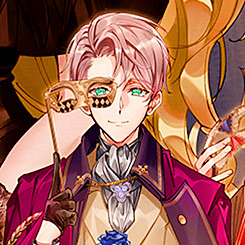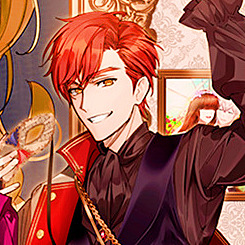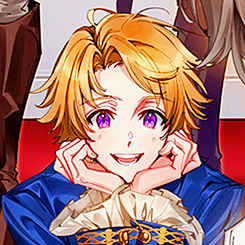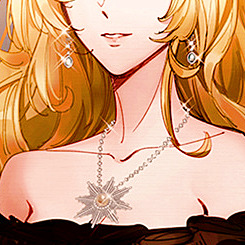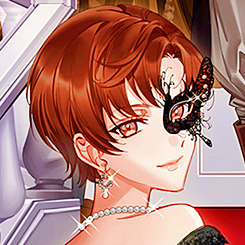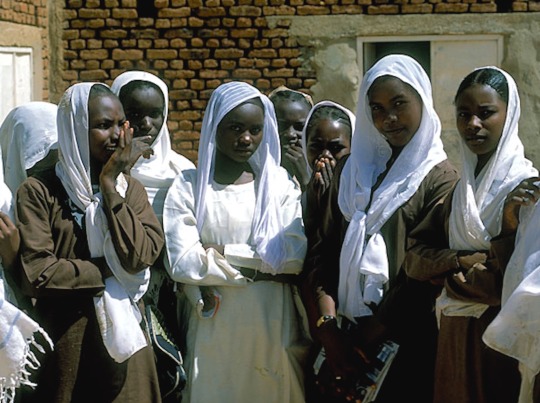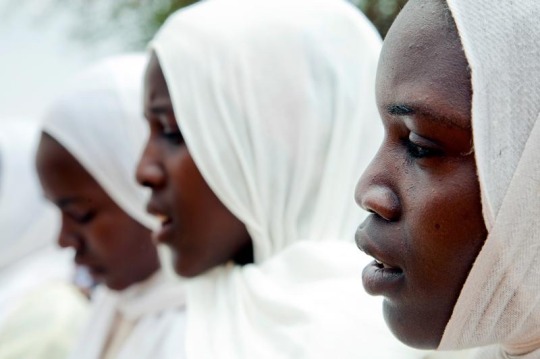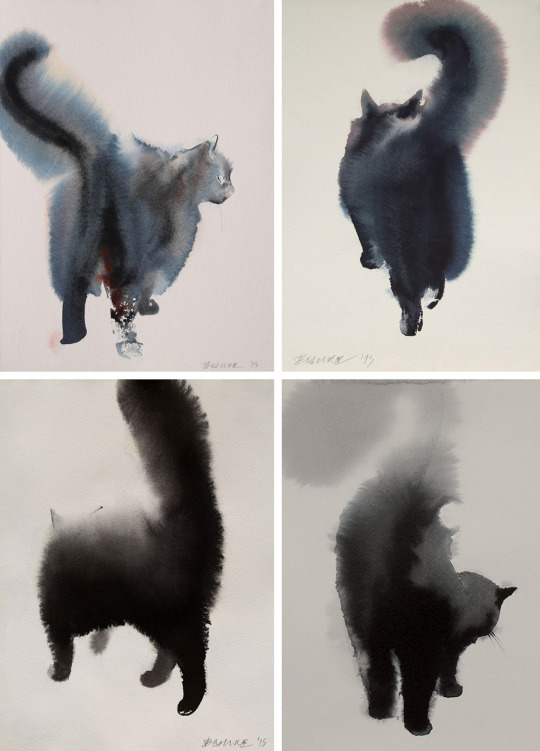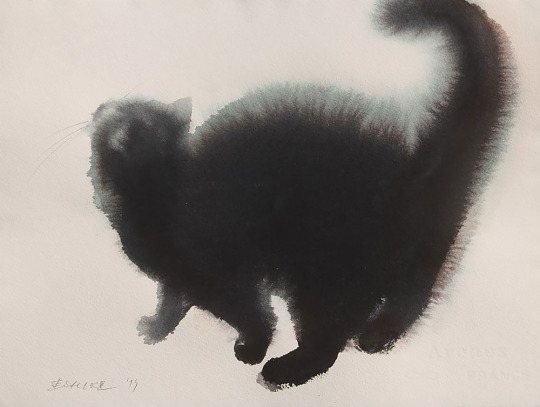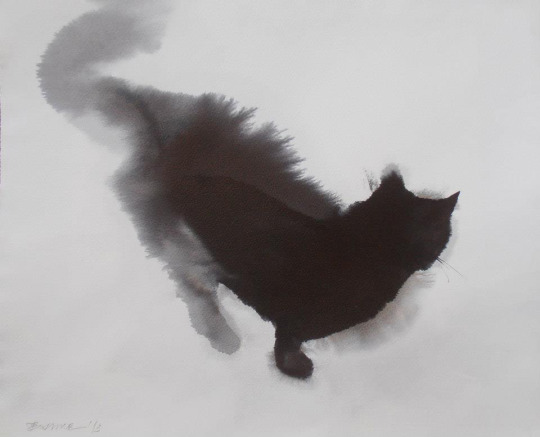Note
Hi! I read your post on Túrin and Beleg's relationship, and I want to say that I agree with your arguments. (especially on people's projection onto them)
I would like to contribute another argument for it, probably my biggest one: the affection/love Beleg has for Túrin is more of a parental love than romantic love.
I tried to write a whole big paragraph, but tumblr crashed on me and it all disappeared! Here is a quote from The Children of Húrin that probably most effectively supports my point:
"If I stayed beside you, love would lead me, not wisdom," said Beleg. "My heart warns me that we should return to Doriath. Elsewhere a shadow lies before us."
"Nonetheless, I will not go there,’ said Túrin.
"Alas!" said Beleg. "But as a fond father who grants his son’s desire against his own foresight, I yield to your will. At your asking, I will stay."
As a thousand years old elf (or hundreds, depending on your headcanon), Beleg is most likely have an "elder and his son/grandson" relationship with Túrin when Túrin is a boy, and still feel the same (and maybe with a new layer of camaraderie and friendship-as-equals on top of it) when Túrin grows into a young adult and then adult. Because the years it takes for Túrin to grow up is way, way too short compared to the numbers of years an elf experiences, for Beleg to just change into loving Túrin romantically. (that would sound immoral, even, like a dad starting to love his son once his son grew up) Or, from another perspective: a child is forever a child in his/her parents' eyes.
Túrin, however, might have moments of confusion on whether he loves Beleg romantically or just as a friend/mentor/parent-like figure. And I'm saying this because Túrin is a human, and as humans grow up (from my own experiences...), they learn new things and experience emotions and feelings that, for them, feels very new. So they might get confused in the process. But, that is very normal, and it does not indicate in any way that he is or will be romantically attracted to the same gender...
Your arguments explains it all--why Túrin does not have to romantically love Beleg, and vice-versa, to be very, very close friends with each other.
Thank you for reading my long-winded, messy thoughts! I'm glad I finally find an excuse to share this with someone!
Loved your points! I agree, besides those lines clearly spell it out.
Another reason I would also add is beleg has literally been with turn since he was a young boy/ A literal child I don't see how people think them being romantic is canon when it would most likely be very icky........
I doubt professor Tolkien would write something so disturbing
14 notes
·
View notes
Note
if you could pair inuyasha with a sailor scout who would you pick
Wow, um...okay...tricky one. Off the top of my head based on personalities....I would say Makoto. Smart and strong. She can stand on her own and hold her own against his sharp attitude. She's also kind and honest and a good cook. He certainly wouldn't see her height as a bad thing, and think she's cool for having the power lightening as well as her other powers. That she could easily beat up some of the demons would be a plus, and he would find her pretty. Among other things he probably would think she's cool regardless of their romantic status, and wouldn't mind just hanging out with her.
So yeah, if I have to pick someone other than Kagome, I would say Sailor Jupitor for Inuyasha as a pairing.
7 notes
·
View notes
Text


Akon Changkou by Lucie Rox for Harper’s Bazaar US May 2023
228 notes
·
View notes
Photo
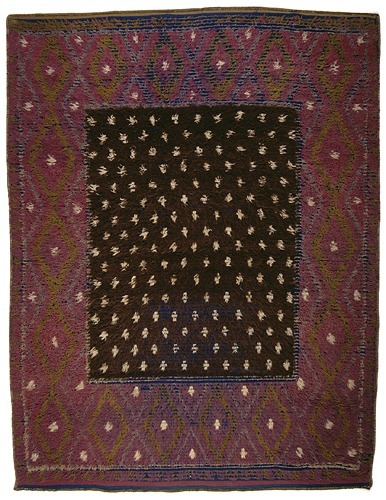
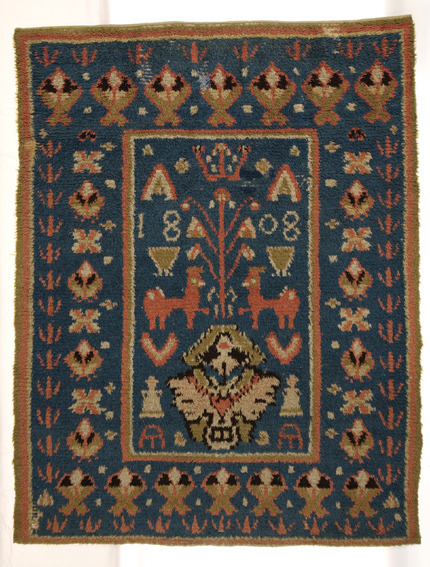
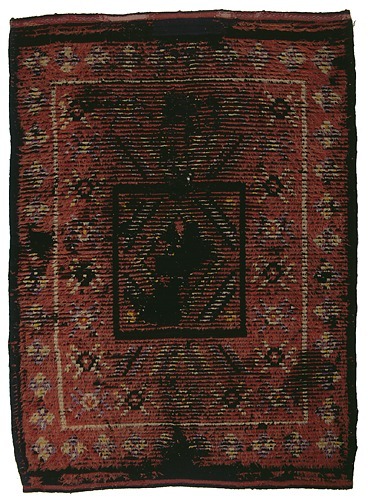


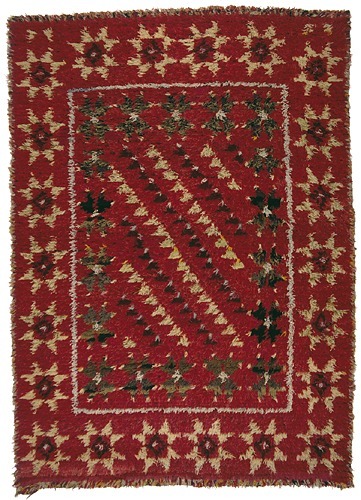
(x)(x)(x) (x)(x)(x)
Traditional Finnish ryijy tapestry rugs from the 19th century
10K notes
·
View notes
Text
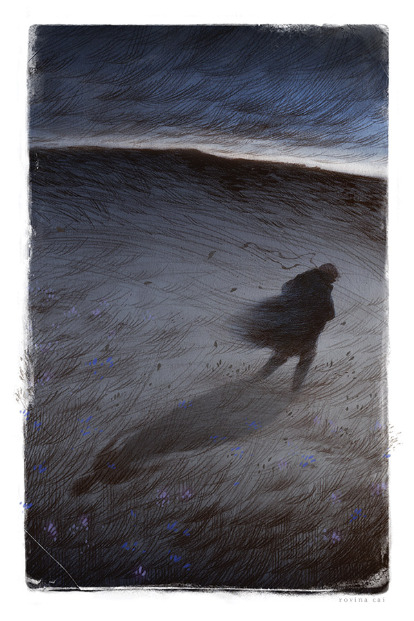

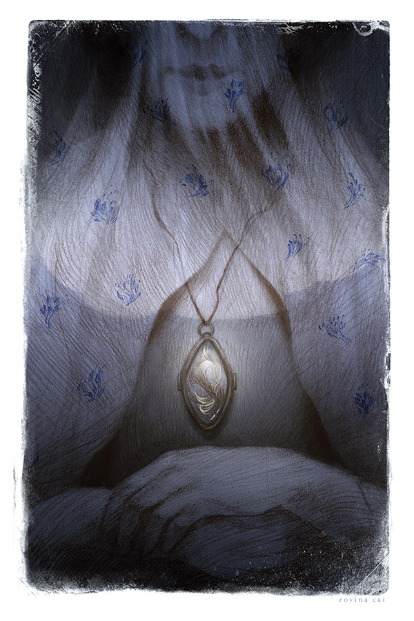
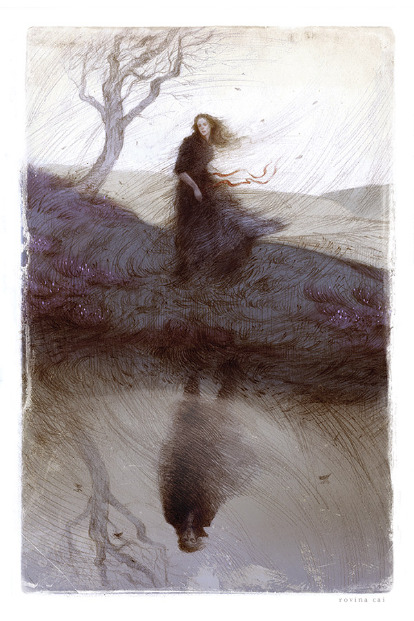
wuthering heights illustrations by rovina cai
3K notes
·
View notes
Text
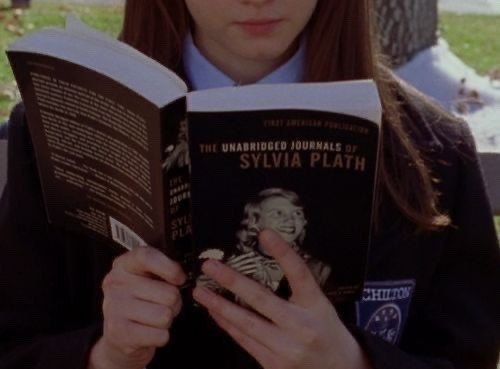
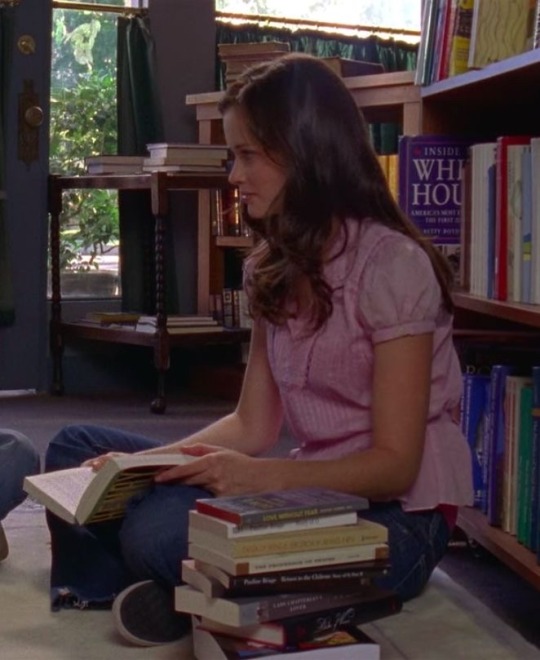
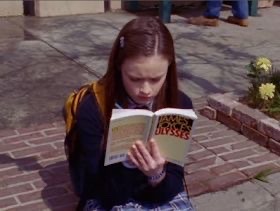
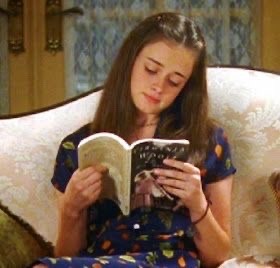
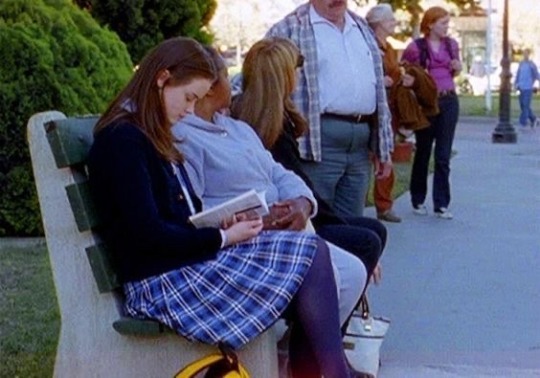

THE RORY GILMORE READING LIST
1) 1984 by George Orwell
2) The Adventures of Huckleberry Finn by Mark Twain
3) The Adventures of Tom Sawyer by Mark Twain
4) Alice’s Adventures in Wonderland by Lewis Carroll
5) All the President’s Men by Carl Bernstein and Bob Woodward
6) The Amazing Adventures of Kavalier and Clay by Michael Chabon
7) An American Tragedy by Theodore Dreiser
8) And Then There Were None by Agatha Christie
9) Angela’s Ashes by Frank McCourt
10) Anna Karenina by Leo Tolstoy
11) The Diary of a Young Girl by Anne Frank
12) The Archidamian War by Donald Kagan
13) The Armies of the Night: History as a Novel, the Novel as a History by Norman Mailer
14) The Art of Fiction by Henry James
15) The Art of Living by Epictetus
16) The Art of War by Sun Tzu
17) As I Lay Dying by William Faulkner
18) Atonement by Ian McEwan
19) Autobiography of a Face by Lucy Grealy
20) The Awakening by Kate Chopin
21) Babe by Dick King-Smith
22) Backlash: The Undeclared War Against American Women by Susan Faludi
23) Balzac and the Little Chinese Seamstress by Dai Sijie
24) Bambi: A Life in the Woods by Felix Salten
25) Bel Canto by Ann Patchett
26) The Bell Jar by Sylvia Plath
27) Beloved by Toni Morrison
28) Beowulf
29) The Bhagavad Gita
30) The Bielski Brothers: The True Story of Three Men Who Defied the Nazis, Built a Village in the Forest, and Saved 1,200 Jews by Peter Duffy
31) Bitch: In Praise of Difficult Women by Elizabeth Wurtzel
32) A Bolt from the Blue and Other Essays by Mary McCarthy
33) Brave New World by Aldous Huxley
34) Brick Lane by Monica Ali
35) Brigadoon by Alan Jay Lerner
36) Candide by Voltaire
37) The Canterbury Tales by Geoffrey Chaucer
38) Carrie by Stephen King
39) Catch-22 by Joseph Heller
40) The Catcher in the Rye by J.D. Salinger
41) The Celebrated Jumping Frog by Mark Twain
42) Charlotte’s Web by E.B. White
43) The Children’s Hour by Lillian Hellman
44) Christine by Stephen King
45) A Christmas Carol by Charles Dickens
46) Cinderella by Brothers Grimm
47) A Clockwork Orange by Anthony Burgess
48) The Code of the Woosters by P.G. Wodehouse
49) The Collected Stories by Eudora Welty
50) A Comedy of Errors by William Shakespeare
51) The Compact Oxford English Dictionary
52) The Complete Novels of Dawn Powell
53) The Complete Poems of Anne Sexton
54) The Complete Stories of Dorothy Parker
55) A Confederacy of Dunces by John Kennedy Toole
56)A Connecticut Yankee in King Arthur’s Court by Mark Twain
57) Consider the Lobster: And Other Essays by David Foster Wallace
58) Contact by Carl Sagan
59) The Count of Monte Cristo by Alexandre Dumas
60) Cousin Bette by Honore De Balzac
61) Crime and Punishment by Fyodor Dostoevsky
62) The Crimson Petal and the White by Michel Faber
63) The Crucible by Arthur Miller
64) Cujo by Stephen King
65) The Curious Incident of the Dog in the Night-Time by Mark Haddon
66) Cyrano De Bergerac by Edmond Rostand
67) Daisy Miller by Henry James
68) Daughter of Fortune by Isabel Allende
69) David Copperfield by Charles Dickens
70) The Da Vinci Code by Dan Brown
71) Dead Souls by Nikolai Gogol
72) Death of a Salesman by Arthur Miller
73) Deenie by Judy Blume
74) Demons by Fyodor Dostoyevsky
75) The Devil in the White City: Murder, Magic, and Madness at the Fair That Changed America by Erik Larson
76) The Diary of A Young Girl by Anne Frank
77) The Dirt: Confessions of the World’s Most Notorious Rock Band by Tommy Lee, Vince Neil, Mick Mars, and Nikki Sixx
78) The Divine Comedy by Dante Alighieri
79) The Divine Secrets of the Ya-Ya Sisterhood by Rebecca Wells
80) Don Quixote by Cervantes
81) Dracula by Bram Stoker
82) Driving Miss Daisy by Alfred Uhrv
83) Edgar Allan Poe: Complete Tales & Poems by Edgar Allan Poe
84) Eleanor Roosevelt by Blanche Wiesen Cook
85) The Electric Kool-Aid Acid Test by Tom Wolfe
86) Ella Minnow Pea: A Novel in Letters by Mark Dunn
87) Eloise at the Plaza by Kay Thompson
88) Emily the Strange by Roger Reger
89) Emma by Jane Austen
90) Empire Falls by Richard Russo
91) Encyclopedia Brown: Boy Detective by Donald J. Sobol
92) Ethan Frome by Edith Wharton
93) Ethics by Spinoza
94) Europe through the Back Door: The Travel Skills Handbook by Rick Steves
95) Eva Luna by Isabel Allende
96) Everything Is Illuminated by Jonathan Safran Foer
97) The Executioner’s Song by Norman Mailer
98) Extravagance by Gary Krist
99) Fahrenheit 451 by Ray Bradbury
100) Fahrenheit 9/11 by Michael Moore
The Fall of the Athenian Empire by Donald Kagan
Fat Land: How Americans Became the Fattest People in the World by Greg Critser
Fear and Loathing in Las Vegas by Hunter S. Thompson
The Fellowship of the Ring by J. R. R. Tolkien
Fiddler on the Roof by Joseph Stein
Finnegan’s Wake by James Joyce
The Five People You Meet in Heaven by Mitch Albom
Fletch by Gregory McDonald
Flowers for Algernon by Daniel Keyes
Fodor’s Selected Hotels of Europe
The Fortress of Solitude by Jonathan Lethem
The Fountainhead by Ayn Rand
Frankenstein by Mary Shelley
Franny and Zooey by J.D. Salinger
Freaky Friday by Mary Rodgers
Galapagos by Kurt Vonnegut
Gender Trouble by Judith Butler
George W. Bushism: The Slate Book of the Accidental Wit and Wisdom of Our 43rd President by Jacob Weisberg
Gidget by Fredrick Kohner
A Girl from Yamhill by Beverly Cleary
Girl, Interrupted by Susanna Kaysen
The Gnostic Gospels by Elaine Pagels
The Godfather by Mario Puzo
The God of Small Things by Arundhati Roy
Goldilocks and the Three Bears: Bears Should Share! by Alvin Granowsky
Gone with the Wind by Margaret Mitchell
Goodnight Spoon by Keith Richards
The Good Soldier by Ford Madox Ford
The Gospel According to Jesus Christ by José Saramago
The Graduate by Charles Webb
The Grapes of Wrath by John Steinbeck
Great Expectations by Charles Dickens
The Great Gatsby by F. Scott Fitzgerald
The Group by Mary Mccarthy
Haiku, Volume 2: Spring by R.H. Blyth
Hamlet by William Shakespeare
Harry Potter and the Goblet of Fire by J.K. Rowling
Harry Potter and the Sorcerer’s Stone by J.K. Rowling
A Heartbreaking Work of Staggering Genius by Dave Eggers
Heart of Darkness by Joseph Conrad
Hell’s Angels: The Strange and Terrible Saga of the Outlaw Motorcycle Gangs by Hunter S. Thompson
Helter Skelter: The True Story of the Manson Murders by Vincent Bugliosi and Curt Gentry
Henry IV, Part I by William Shakespeare
Henry IV, Part II by William Shakespeare
Henry V by William Shakespeare
Henry VI by William Shakespeare
He’s Just Not That into You by Greg Behrendt and Liz Tuccillo
High Fidelity by Nick Hornby
The History of the Decline and Fall of the Roman Empire by Edward Gibbon
Holidays on Ice: Stories by David Sedaris
The Holy Barbarians by Lawrence Lipton
Horton Hears A Who! by Dr. Seuss
House of Sand and Fog by Andre Dubus III
The House of the Spirits by Isabel Allende
Howl and Other Poems by Allen Ginsberg
How to Breathe Underwater by Julie Orringer
How the Grinch Stole Christmas by Dr. Seuss
How the Light Gets In by M. J. Hyland
The Hunchback of Notre Dame by Victor Hugo
I Feel Bad about My Neck by Nora Ephron
The Iliad by Homer
I’m with the Band by Pamela Des Barres
In Cold Blood by Truman Capote
Indiana by George Sand
The Inferno by Dante Alighieri
Inherit the Wind by Jerome Lawrence and Robert E. Lee
Ironweed by William J. Kennedy
It Takes A Village by Hillary Rodham Clinton
Jane Eyre by Charlotte Brontë
The Joy Luck Club by Amy Tan
Julius Caesar by William Shakespeare
The Jungle by Upton Sinclair
Jurassic Park by Michael Crichton
Just a Couple of Days by Tony Vigorito
The Kitchen Boy: A Novel of the Last Tsar by Robert Alexander
Kitchen Confidential: Adventures in the Culinary Underbelly by Anthony Bourdain
The Kite Runner by Khaled Hosseini
Lady Chatterley’s Lover by D. H. Lawrence
The Last Empire: Essays 1992–2000 by Gore Vidal
The Last Lion: Winston Spencer Churchill, Volume I: Visions of Glory, 1874–1932 by William Manchester
The Last Lion: Winston Spencer Churchill, Volume II: Alone, 1932–1940 by William Manchester
The Last Lion: Winston Spencer Churchill, Volume III: Defender of the Realm, 1940–1965 by William Manchester
Leaves of Grass by Walt Whitman
The Legend of Bagger Vance by Steven Pressfield
Less than Zero by Bret Easton Ellis
Letters of Ayn Rand by Ayn Rand
Letters of Edith Wharton by R. W. B. Lewis
Letters to a Young Poet by Rainer Maria Rilke
The Libation Bearers by Aeschylus
Lies and the Lying Liars Who Tell Them by Al Franken
The Life-Changing Magic of Tidying Up by Marie Kondo
Life of Pi by Yann Martel
Like Water for Chocolate by Laura Esquivel
The Lion, the Witch and the Wardrobe by C.S. Lewis
Lisa and David by Dr. Theodore Isaac Rubin, M.D.
Little Dorrit by Charles Dickens
Little House in the Big Woods by Laura Ingalls Wilder
The Little Locksmith by Katharine Butler Hathaway
The Little Match Girl by Hans Christian Andersen
Little Women by Louisa May Alcott
Living History by Hillary Rodham Clinton
Lord of the Flies by William Golding
The Lord of the Rings by J.R.R. Tolkien
The Lottery: And Other Stories by Shirley Jackson
The Lovely Bones by Alice Sebold
Love Story by Erich Segal
Macbeth by William Shakespeare
Madame Bovary by Gustave Flaubert
The Manticore by Robertson Davies
Marathon Man by William Goldman
The Master and Margarita by Mikhail Bulgakov
The Meaning of Consuelo by Judith Ortiz Cofer
Memoirs of A Dutiful Daughter by Simone De Beauvoir
The Memoirs of General William T. Sherman by William Tecumseh Sherman
Men Are from Mars, Women Are from Venus by John Gray
Mencken’s Chrestomathy by H.L. Mencken
The Merry Wives of Windsor by William Shakespeare
Me Talk Pretty One Day by David Sedaris
The Metamorphosis by Franz Kafka
Middlesex by Jeffrey Eugenides
A Midsummer Night’s Dream by William Shakespeare
The Miracle Worker by William Gibson
Misery by Stephen King
Mistress of Mellyn by Victoria Holt
Moby Dick by Herman Melville
The Mojo Collection: The Greatest Albums of All Time by Jim Irvin
Moliere: A Biography by Hobart Chatfield Taylor
Molloy by Samuel Beckett
A Monetary History of the United States by Milton Friedman
Monsieur Proust by Celeste Albaret
A Month of Sundays: Searching for the Spirit and My Sister by Julie Mars
Motley Crue by Seamus Craic
The Mourning Bride by William Congreve
A Movable Feast by Ernest Hemingway
Mrs. Dalloway by Virginia Woolf
Mutiny on the Bounty by Charles Nordhoff and James Norman Hall
My Lai 4: A Report on the Massacre and Its Aftermath by Seymour M. Hersh
My Life as Author and Editor by H.L. Mencken
My Life in Orange: Growing up with the Guru by Tim Guest
Myra Waldo’s Travel and Motoring Guide to Europe by Myra Waldo
My Sister’s Keeper by Jodi Picoult
My Struggle by Karl Ove Knausgaard
The Naked and the Dead by Norman Mailer
Naked Lunch by William S. Burroughs
The Name of the Rose by Umberto Eco
The Namesake by Jhumpa Lahiri
Nancy Drew and the Witch Tree Symbol by Carolyn Keene
The Nanny Diaries by Emma Mclaughlin
Nervous System: Or, Losing My Mind in Literature by Jan Lars Jensen
New Poems of Emily Dickinson by Emily Dickinson
The New Way Things Work by David Macaulay
Nickel and Dimed: On (Not) Getting by in America by Barbara Ehrenreich
Nicholas Nickleby by Charles Dickens
Night by Elie Wiesel
Northanger Abbey by Jane Austen
The Norton Anthology of Theory and Criticism edited by Jeffrey J. Williams, et al.
Notes of A Dirty Old Man by Charles Bukowski
Novels, 1930–1942: Dance Night/Come Back to Sorrento, Turn, Magic Wheel/Angels on Toast/A Time to Be Born by Dawn Powell
Oedipus Rex by Sophicles
Of Mice and Men by John Steinbeck
Old School by Tobias Wolff
Oliver Twist by Charles Dickens
One Day in the Life of Ivan Denisovich by Aleksandr Solzhenitsyn
One Flew over the Cuckoo’s Nest by Ken Kesey
One Hundred Years of Solitude by Gabriel Garcia Marquez
On the Road by Jack Kerouac
The Opposite of Fate: Memories of A Writing Life by Amy Tan
Oracle Night by Paul Auster
Oryx and Crake by Margaret Atwood
Othello by William Shakespeare
Our Mutual Friend by Charles Dickens
The Outbreak of the Peloponnesian War by Donald Kagan
Out of Africa by Isak Dineson
The Outsiders by S.E. Hinton
A Passage to India by E.M. Forster
The Peace of Nicias and the Sicilian Expedition by Donald Kagan
The Perks of Being a Wallflower by Stephen Chbosky
Peyton Place by Grace Metalious
The Picture of Dorian Gray by Oscar Wilde
Pigs at the Trough by Arianna Huffington
Pinocchio by Carlo Collodi
Please Kill Me: The Uncensored Oral History of Punk by Legs McNeil and Gillian McCain
The Polysyllabic Spree by Nick Hornby
The Portable Dorothy Parker by Dorothy Parker
The Portable Nietzsche by Fredrich Nietzsche
The Price of Loyalty: George W. Bush, the White House, and the Education of Paul O’Neill by Ron Suskind
Pride and Prejudice by Jane Austen
Primary Colors by Joe Klein
Property by Valerie Martin
The Pump House Gang by Tom Wolfe
The Pursuit of Love & Love in a Cold Climate: Two Novels by Nancy Mitford
Pushkin: A Biography by T.J. Binyon
Pygmalion by George Bernard Shaw
Quattrocento by James Mckean
A Quiet Storm by Rachel Howzell Hall
Rapunzel by Brothers Grimm
“The Raven” by Edgar Allan Poe
The Razor’s Edge by W. Somerset Maugham
Reading Lolita in Tehran: A Memoir in Books by Azar Nafisi
Rebecca by Daphne Du Maurier
Rebecca of Sunnybrook Farm by Kate Douglas Wiggin
The Red Badge of Courage by Stephen Crane
The Red Tent by Anita Diamant
Rescuing Patty Hearst: Memories from a Decade Gone Mad by Virginia Holman
The Return of the King by J.R.R. Tolkien
Revolution from Within: A Book of Self-Esteem by Gloria Steinem
Richard III by William Shakespeare
R Is for Ricochet by Sue Grafton
Rita Hayworth by Stephen King
Robert’s Rules of Order by Henry Robert
Roman Fever by Edith Wharton
Romeo and Juliet by William Shakespeare
A Room of One’s Own by Virginia Woolf
A Room with a View by E.M. Forster
Rosemary’s Baby by Ira Levin
The Rough Guide to Europe
Sacred Time by Ursula Hegi
Sanctuary by William Faulkner
The Satanic Verses by Salman Rushdie
Savage Beauty: The Life of Edna St. Vincent Millay by Nancy Milford
The Scarecrow of Oz by Frank L. Baum
The Scarlet Letter by Nathaniel Hawthorne
Seabiscuit: An American Legend by Laura Hillenbrand
The Second Sex by Simone De Beauvoir
The Secret Life of Bees by Sue Monk Kidd
Secrets of the Flesh: A Life of Colette by Judith Thurman
Selected Letters of Dawn Powell: 1913–1965 by Dawn Powell
Sense and Sensibility by Jane Austen
A Separate Peace by John Knowles
Sexus by Henry Miller
The Shadow of the Wind by Carlos Ruíz Zafon
Shane by Jack Shaefer
The Shining by Stephen King
Siddhartha by Hermann Hesse
S Is for Silence by Sue Grafton
Slaughterhouse-Five by Kurt Vonnegut
Small Island by Andrea Levy
Snows of Kilimanjaro by Ernest Hemingway
Snow White and Rose Red by Brothers Grimm
Social Origins of Dictatorship and Democracy: Lord and Peasant in the Making of the Modern World by Barrington Moore
Something Wicked This Way Comes by Ray Bradbury
Songbook by Nick Hornby
A Song of Ice and Fire by George R.R. Martin
The Song of Names by Norman Lebrecht
The Song Reader by Lisa Tucker
Song of the Simple Truth: The Complete Poems of Julia De Burgos by Julia De Burgos
“Sonnet 43” by Elizabeth Barrett Browning
The Sonnets by William Shakespeare
Sonnets from the Portuguese by Elizabeth Barrett Browning
Sophie’s Choice by William Styron
The Sound and the Fury by William Faulkner
Speak, Memory by Vladimir Nabokov
The Stepford Wives by Ira Levin
Stiff: The Curious Lives of Human Cadavers by Mary Roach
The Story of My Life by Helen Keller
The Strange Case of Dr. Jekyll & Mr. Hyde by Robert Louis Stevenson
A Streetcar Named Desire by Tennessee Williams
Stuart Little by E.B. White
Summer of Fear by T. Jefferson Parker
The Sun Also Rises by Ernest Hemingway
Swann’s Way by Marcel Proust
Swimming with Giants: My Encounters with Whales, Dolphins and Seals by Anne Collett
Sybil by Flora Rheta Schreiber
A Tale of Two Cities by Charles Dickens
The Tell-Tale Heart by Edgar Allan Poe
Tender Is the Night by F. Scott Fitzgerald
Terms of Endearment by Larry McMurtry
Tevya the Dairyman and the Railroad Stories by Sholem Aleichem
They Shoot Horses, Don’t They? by Horace McCoy
The Thin Man by Dashiell Hammett
Time and Again by Jack Finney
The Time Traveler’s Wife by Audrey Niffenegger
To Have and Have Not by Ernest Hemingway
To Kill a Mockingbird by Harper Lee
Trainspotting by Irvine Welsh
A Tree Grows in Brooklyn by Betty Smith
The Trial by Franz Kafka
The True and Outstanding Adventures of the Hunt Sisters by Elisabeth Robinson
Truth & Beauty: A Friendship by Ann Patchett
Tuesdays with Morrie by Mitch Albom
Ulysses by James Joyce
The Unabridged Journals of Sylvia Plath by Sylvia Plath
The Unbearable Lightness of Being by Milan Kundera
Uncle Tom’s Cabin by Harriet Beecher Stowe
Unless by Carol Shields
Valley of the Dolls by Jacqueline Susann
The Vanishing Newspaper by Philip Meyers
Vanity Fair by William Makepeace Thackeray
Velvet Underground’s the Velvet Underground and Nico (33 1/3 Book 11) by Joe Harvard
The Virgin Suicides by Jeffrey Eugenides
Visions of Cody by Jack Kerouac
Waiting for Godot by Samuel Beckett
Walden by Henry David Thoreau
War and Peace by Leo Tolstoy
We Owe You Nothing: Punk Planet: The Collected Interviews by Daniel Sinker
What Color Is Your Parachute? by Richard Nelson Bolles
What Happened to Baby Jane? by Henry Farrell
When the Emperor Was Divine by Julie Otsuka
Who Moved My Cheese? by Spencer Johnson
Who’s Afraid of Virginia Woolf? by Edward Albee
Wicked: The Life and Times of the Wicked Witch of the West by Gregory Maguire
Wild by Cheryl Strayed
The Witches of Eastwick by John Updike
The Wonderful Wizard of Oz by L. Frank Baum
Wuthering Heights by Emily Brontë
The Yearling by Marjorie Kinnan Rawlings
The Year of Magical Thinking by Joan Didion
Yoga for Dummies by Georg Feuerstein and Larry Payne
there’s more...i’ll update later
398 notes
·
View notes
Text
Why I think beleg and turin being a canon couple is conjecture
1. The word "tryst" used
The more commonly know meaning of tryst is a secret meeting between lovers which does cause confusion when reading into their relationship but people ignore the second meaning of tryst either deliberately or out of ignorance.
The second meaning being "an appointed meeting or meeting place" which makes more sense. If the context was romantic it would make no sense why androg would be jealous.
2. Kissing beleg
We must first take in mind their relationship from start. Turin had seen beleg since childhood. He was closest to what turn can call an older brother or father figure who also later became his dearest friend. I saw the kiss at the time of death as purely platonic. Like a child kissing their parent/ or a brother kissing his dead brother
Even as friends it would make sense, turin is in extreme anguish he has just killed the only person he has been close to since childhood. Probably his mentor aswell. Hence he kisses his corpse as a last goodbye.
It baffles me that people view this as a sign that he was sexually and romantically attracted to beleg.
Some also argue that he gave his open mouth a kiss that is why it must be romantic in nature, as if a corpse is in any position to close it's mouth.
3. Tolkien's own view of friendship.
A common theme in all of Tolkien's work is extremely close and intense bond of friendship and brotherhood between men. This makes sense as he himself served in army during times of war. Soldiers develop intense and close friendships as they go through extremely traumatic times. Tolkien wrote these friendships based on actual bonds of friendship he had seen while in the army.
Even the friendship of Sam and frodo which is constantly under scrutiny was based on relationship between a Batman and the officer he was serving.
Carpenter’s Biography quotes Tolkien as saying, “My ‘Sam Gamgee’ is indeed a reflexion of the English soldier, of the privates and batmen I knew in the 1914 war, and recognized as so far superior to myself.” A batman, in military parlance, was a soldier who (as well as being required to fight) was tasked with looking after an officer’s kit, cooking, and cleaning. Tolkien’s phrasing in the letter sent to Minchin is different, and very interesting too: “My ‘Samwise’ is indeed (as you note) largely a reflexion of the English soldier—grafted on the village-boys of early days, the memory of the privates and my batmen that I knew in the 1914 War, and recognized as so far superior to myself"
As someone who had family members serve in army and have Batman as their servers I can attest to their incredible loyalty.
4. Projection from people.
Tolkien was a firm christian. Even though he had a student who wrote queer stories and read them I doubt he would include homosexuality in his works. He hated narnia for the way C.S lewis wrote allegory and christian allegory in this story.
His firm believes are clearly reflected in his stories.
All his elves are built upon the image of good christian. They can only marry (romantic involvement) the opposite sex (no homosexuality). They can't have sex outside of marriage. Their sexual desires fade away after having children.
By this default beleg is definitely straight and turin is as well ( as he fell in love with nienor and if he was bisexual over the course of his whole journey he would have fallen in love with a man since he had more companion who were male and it would make sense but he didn't and only fall in love with a women and got her pregnant.)
They reason why fans especially western fans feel so confused at the immense platonic love between his characters is because their society is hyper sexual. Any form of deep affection especially between same genders must be seen as sexual/romantic.
As someone that isn't from the west and has seen such deep relationships between the same-sex, no these characters aren't sexually repressed or secret lovers. They love each other very much, just platonically that is all.
Another kind of audience is one that projects their own views over the actual text. These have either read too gay themed stories or are gay themselves. I would say take your personal bias away and see these texts in light of what tolkiens mindset was.
Extra: same issue with fingon and maedhros who are also family. I have seen so many close friendships and extreme bonds of platonic love between cousins who have also saved each other from life threatening situations and have never thought wow they must be secret lovers 🤦
Note: one more point is to note that platonic love is of greater scale in professor Tolkien's work than romantic love in most scenarios. Also elves formed great platonic friendships.
*A point written by someone in reddit
"Elf-friend" status isn't something that an Elf can award to a favored mortal, and that all Elves somehow recognize once one Elf has conferred it. Being an "elf-friend" is a psychological and spiritual state that some mortals attain, and once they do all Elves (and creatures of similar spiritual discernment) are able to recognize it.
In fact, being an "elf-friend" is a sign that a given mortal is in tune with the way Arda was supposed to be from the beginning. The estrangement of Elves and mortals only came about because of the Marring of Arda by Melkor. Had that not happened, all mortals would have had the benefit of living with and conversing with Elves, who would have been their helpers and teachers. That would have left a clear mark upon them - longer life, clearer intelligence, deeper spiritual existence - just as it did upon those few mortals who got the opportunity despite the Marring
It seems friendships between mortals and elves are very spiritual in nature. And beleg does provide guidance and counsel to turin almost akin to a spiritual guide and friend/parental figure.
45 notes
·
View notes
Photo
Thank God someone has common sense

Maedhros and Fingon :: Archery Practice
:: Buy this in my Society6 store! :: //“You might try to aim at the target this time.” Maedhros chuckled in mockery, as he watched his young cousin with judgement like that of an older brother. “Or would you want me to show you, yet again?” Fingon snorted humourlessly through clenched teeth as he drew the arrow to his ear as taught, the exertion of the act making the muscles of his shoulder and arm vibrate in objection after many such motions. The last arrow he had imbedded but a hand-length from the mark, and the frustration was clear in his tightened jaw and narrowing eyes. The young elf inhaled deeply, this time determined to shoot straight. He exhaled slowly, releasing the arrow to fly through the air as the last of his breath left his lunges. It hit the mark with a twack as the metal tip drove into the plate of straw with force. Fingon exclaimed in a cry of victory, and turned to his cousin with a smug grin stapled on his face. “What were you saying, cousin? Perhaps you should not be so swift to disregard my quickness in learning.” Maedhros raised a brow unimpressed. “This is a testimate to my teachings, if anything. If I can teach you, then your baby sister will be next. It will not be so much harder a task, I should think.” He flashed Fingon a challenging grin. The youngster grimaced mockingly in return and held out his hand. “Be quiet and give me another arrow, old man.”// (I wrote the text now to go with the drawing and to underline my idea; it is rushed but I liked it.)
Idea Do not ask me how this idea came into my mind, but I enjoyed drawing it thoroughly. I simply loved the idea of a fully matured Maedhros teaching his adolescent cousin to shoot with bow and arrow. My last time of reading the silmarillion I understood that at the time of Finwe’s remariage with Indis, Fëanor was already grown and married to Nerdanel, so he would get Maedhros at aprox the time that Indis would have Fingolfin, which would mean that Fingon is quite younger than Maedhros. I do not know in years, but I’d guess half a dozen decades at least. So, it is definitely a headcanon of mine that Mae would enjoy the tutoring of his younger cousin. He always seemed the most sympathetic of the Feanorians, especially in his friendship with Fingon. Some of you may also know that I have a headcanon of the dress evolution of the elves through the ages. In early Valinor I imagine them wearing something like the ancient egyptians did, it being a land of beauty and comfort, I see it as sunny and warm, even before the rising of the sun. So that is the explanation for their attires. There is nothing sexual about it. Technique I drew this exclusively with an 8H pencil, and tuned the contrast some in photoshop after scanning–btw, if anyone has a good scanner to recommend, which is not too expensive, I would gladly hear it as mine is terrible. I used a smudge stick for the shading, and it was indeed my first attempt at using one, so I instantly fell in love with the technique, so the shading was a surprisingly easy process, even with the two months grace period–which is my way of categorising my terrible anxiety of finishing drawings I have used much too long time on. The anatomy obviously is not perfect, but this is still one of the best drawings I have made with two people in it–I even drew feet! YAY! And of course I managed to misplace them on the page so I could not finish the top of Fingon’s bow and the end of Maedhros’. But I could still stare at them both all day, as they turned out perfectly to my vision(!!). Conclusion It awes me whenever I don’t hate what I draw, and lately I have hated very little of my art. It is slightly unsettling, to be honest, and it makes me put a lot of pressure on my art, which in return makes me procrastinate. Its a bad circle, but I do love this drawing, with all its flaws, and I was very happy and excited to finish it. It is rather sketchy in style, but I like that as well, and I enjoyed drawing something completely different for once. I hope you like it too, and let me know what you think, of the idea and the drawing!^^ Love, Iggy PS. I cannot stress enough that I do not ship them romantically, and I would very much appreciate if you do not sexualize this drawing of mine. I respect that people have different impressions than me, but I also hope you will respect mine and focus on the art itself. Thank you! <3
397 notes
·
View notes
Text
Violet Evergarden Novel Index
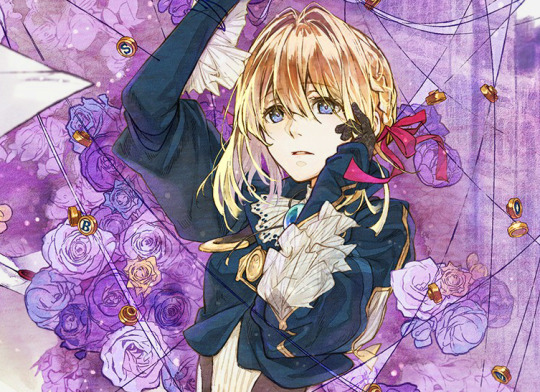
Masterpost of my English translations of the main story. If you can, please support the creators by buying the official releases here. In case of wishing to re-translate this into other languages, contact me here. If anyone is feeling generous, please consider donating to my Ko-fi or PayPal. ( ╹◡╹)っ’・*
General Index || Chronological Order
Keep reading
8K notes
·
View notes
Text
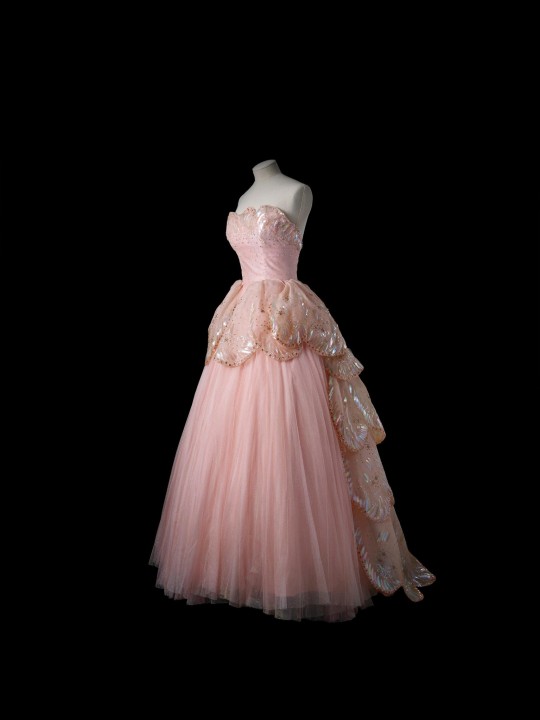
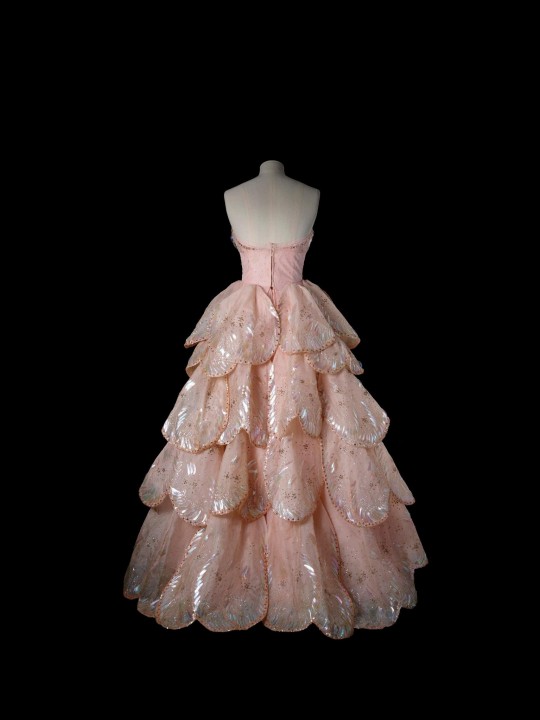
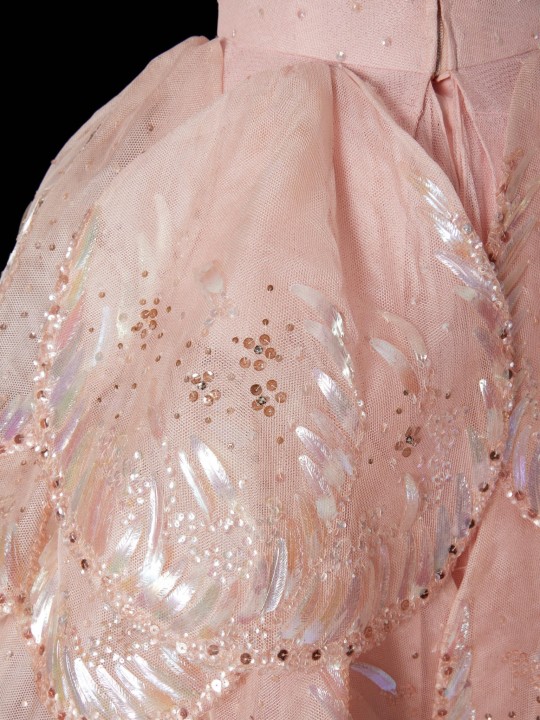
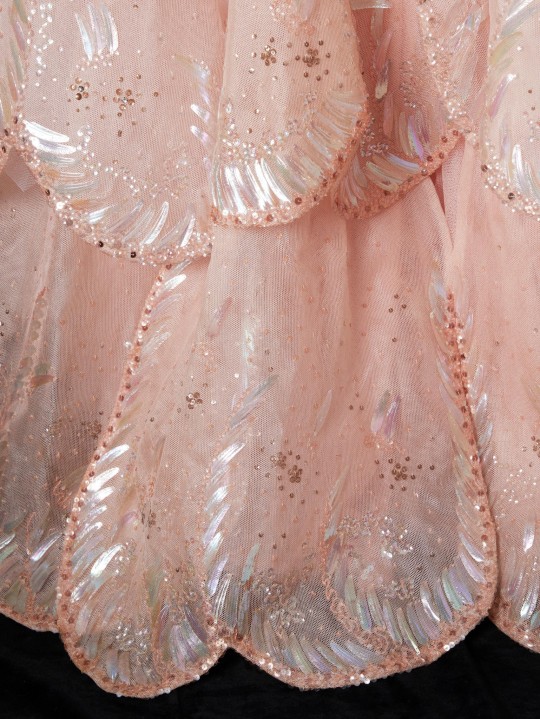
~ Vénus: Autumn/Winter, Milieu du siècle collection.
Designer/Maker: Christian Dior; embroidery by Maison Rébé; authorized copy made by Nanty Frocks, New York
Place of origin: Designed in Paris, produced in New York
Date: 1949-1950
Medium: Viscose (rayon) tulle with pearlised paillettes and sequins
3K notes
·
View notes
Photo



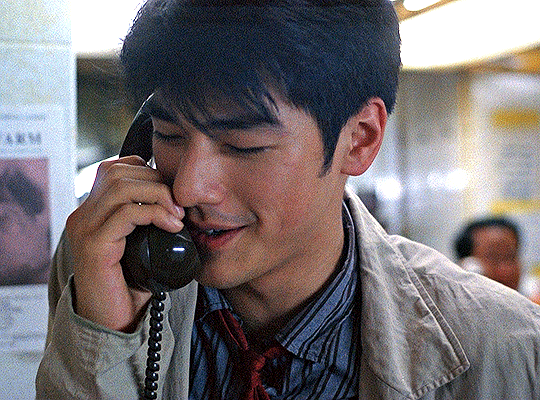
Takeshi Kaneshiro as He Zhiwu CHUNGKING EXPRESS (1994) dir. Wong Kar Wai
3K notes
·
View notes


